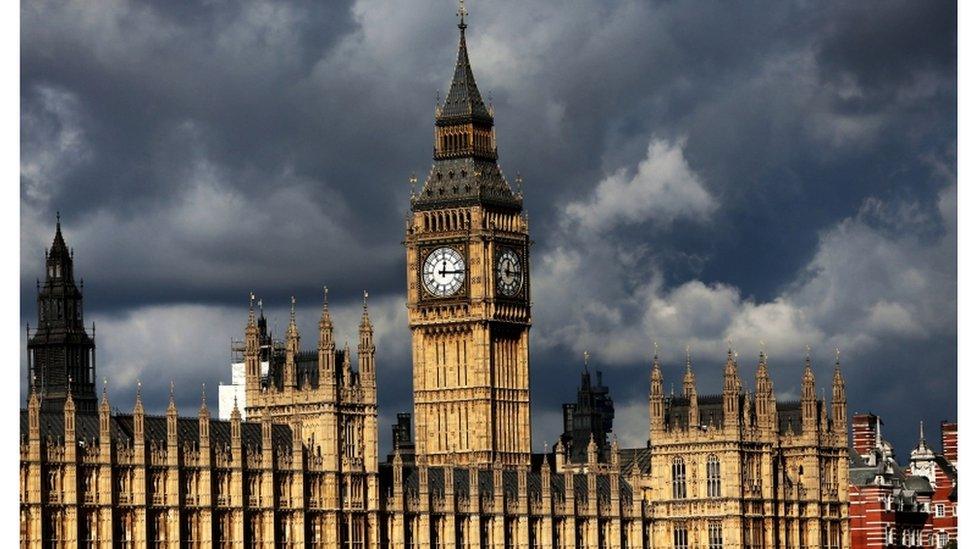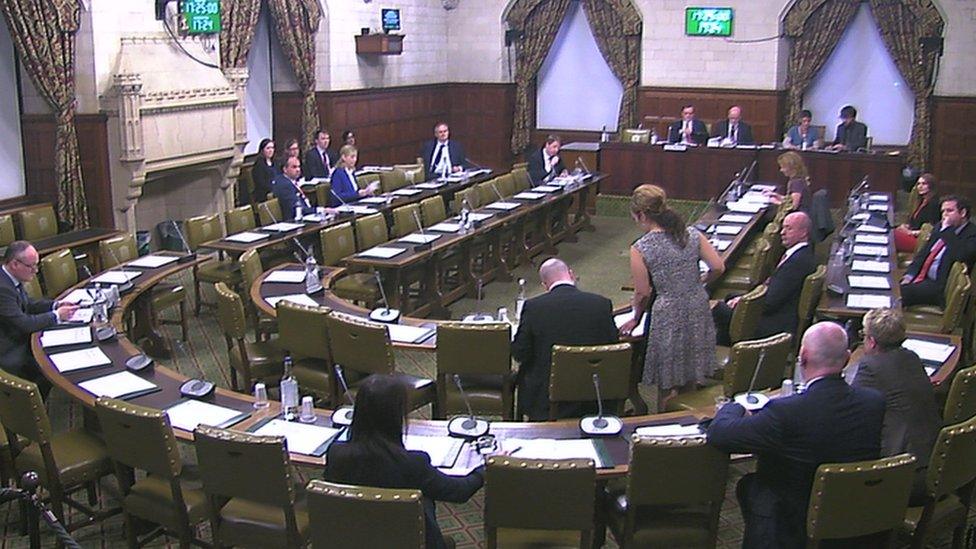What happens when a petition gets debated in Parliament?
- Published

It's almost impossible to log onto social media without seeing a friend, a relative - or a barely-remembered acquaintance - asking you to sign a petition about some issue of the day.
If the petition is being hosted on Parliament's official website there's another inducement to sign. If you get more than 100,000 signatures, the petition will be considered for debate in Parliament.
Except… your petition might not get debated.
In the current Parliament, 11 well-supported petitions have been rejected by the Petitions Committee. The committee rejects petitions if it believes that the UK government cannot do anything about the issue (the reason it said no to a petition calling for Israeli PM Benjamin Netanyahu to be arrested for war crimes, for instance).
But if the Petitions Committee decides that the UK government can do something about your petition, and you've got support, you're in.
A debate on the green benches in the mother of all parliaments is yours.
Except it isn't, because your debate will be held in Westminster Hall, which is best described as an annexe to the main House of Commons chamber.
Debates taking place in Westminster Hall can be thinly attended. In Monday's debate on a number of Brexit petitions there were, at most, around 14 MPs in the room, the other 630 sitting MPs having judged that they had better places to be. So if you were hoping your debate would get your issue noticed among MPs, you may be out of luck.
But you'll get an MP to introduce your debate, and fight your corner. Except they won't necessarily do so. Sutton and Cheam MP Paul Scully introduced Monday's Brexit debate but flat-out disagreed with a number of the petitions being discussed.
He played a similar role during a debate last year on an e-petition entitled "stop allowing immigrants into the UK".
What you do get is a minister who'll have to show up and explain government thinking on your issue.
Don't expect them to have good news for you, however.
There's a reason you've had to fight for the support of 100,000 of your fellow citizens - and get past the Petitions Committee - to get this far. At best, a minister will politely tell you that the government notes your concerns, and then give a justification of current government policy.

Another afternoon in Westminster Hall
Essentially, many of the issues that come up for debate, because of a petition, will not be made law because they are very far off from the values or aims of the current government.
Perhaps more ministers should be as straightforward as then Home Office Minister Mike Penning, who told a debate on legalising cannabis last year that "I will not stand here and say, 'We are going to legalise cannabis'."
So after all that, what have you got? A polite recognition by a minister. And an airing of the issue, in front of a handful of MPs. Publicity for your cause.
Take another look look at the issues debated because of petitions in this Parliament, external: get rid of Jeremy Hunt, legalise cannabis, stop all immigration, stop the imposition of the junior doctors contract. Many of them appear to be lost causes.

Sugar tax campaigners showed ministers the strength of feeling among MPs with a Westminster Hall debate
Except one. On 30 November 2015, MPs debated introducing a sugar tax, in response to a petition signed by over 155,000 people.
The debate was well attended, the arguments passionate and overwhelmingly in favour of doing so. But minister Jane Ellison told it to MPs straight. The government had "no plans" to introduce a sugar tax. It would announce its obesity strategy at a later date.
And then in his March 2016 budget, the then Chancellor George Osborne announced a levy on soft drinks manufacturers, linked to the amount of sugary drinks they sell. A policy very much like a sugar tax.
So maybe it is worth signing that petition after all.